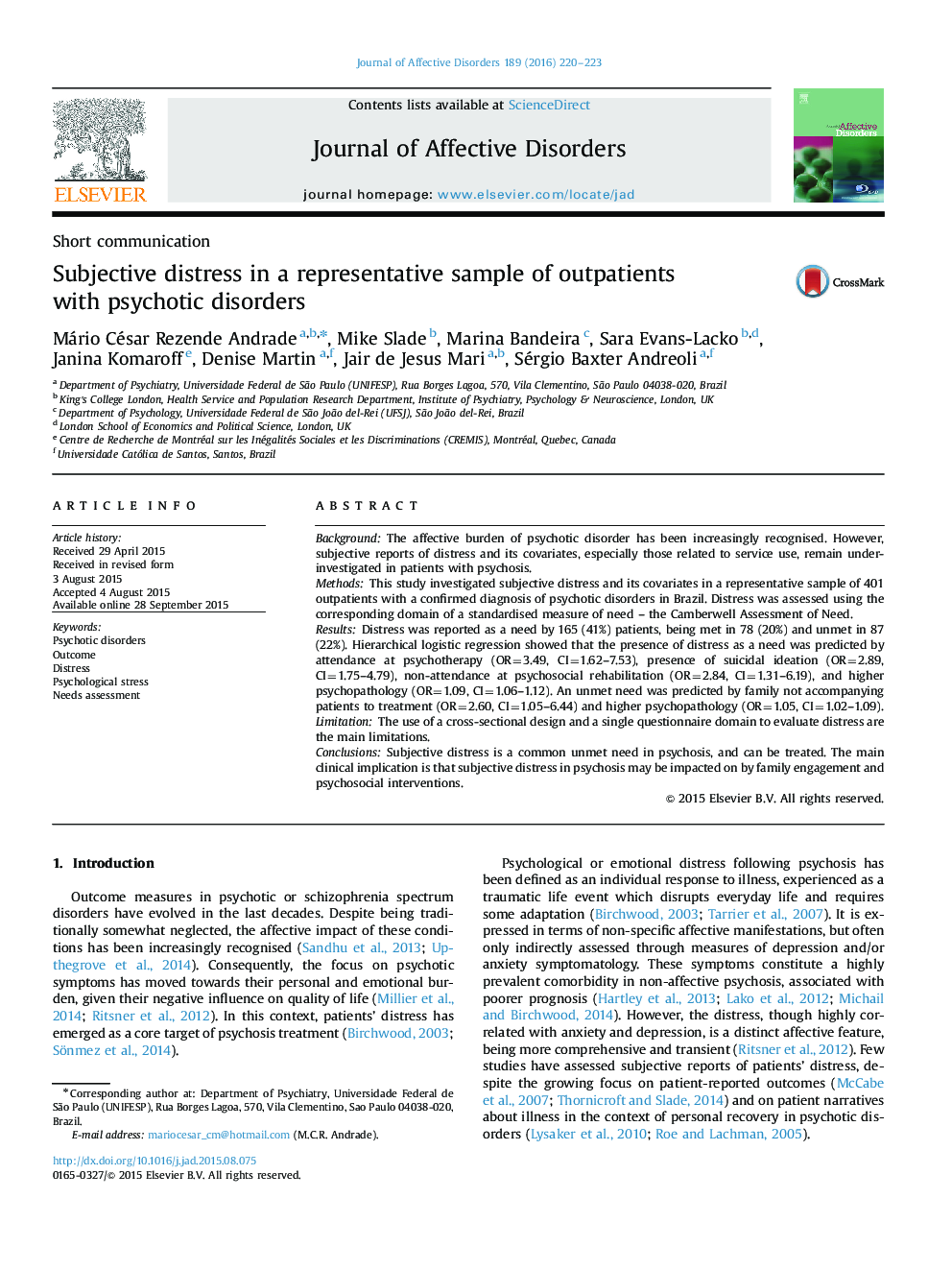| Article ID | Journal | Published Year | Pages | File Type |
|---|---|---|---|---|
| 6230886 | Journal of Affective Disorders | 2016 | 4 Pages |
â¢Subjective distress was a common reported unmet need in outpatients with psychosis.â¢It was mostly predicted by clinical and service use variables.â¢It may be impacted on by family engagement and psychosocial interventions.
BackgroundThe affective burden of psychotic disorder has been increasingly recognised. However, subjective reports of distress and its covariates, especially those related to service use, remain under-investigated in patients with psychosis.MethodsThis study investigated subjective distress and its covariates in a representative sample of 401 outpatients with a confirmed diagnosis of psychotic disorders in Brazil. Distress was assessed using the corresponding domain of a standardised measure of need - the Camberwell Assessment of Need.ResultsDistress was reported as a need by 165 (41%) patients, being met in 78 (20%) and unmet in 87 (22%). Hierarchical logistic regression showed that the presence of distress as a need was predicted by attendance at psychotherapy (OR=3.49, CI=1.62-7.53), presence of suicidal ideation (OR=2.89, CI=1.75-4.79), non-attendance at psychosocial rehabilitation (OR=2.84, CI=1.31-6.19), and higher psychopathology (OR=1.09, CI=1.06-1.12). An unmet need was predicted by family not accompanying patients to treatment (OR=2.60, CI=1.05-6.44) and higher psychopathology (OR=1.05, CI=1.02-1.09).LimitationThe use of a cross-sectional design and a single questionnaire domain to evaluate distress are the main limitations.ConclusionsSubjective distress is a common unmet need in psychosis, and can be treated. The main clinical implication is that subjective distress in psychosis may be impacted on by family engagement and psychosocial interventions.
